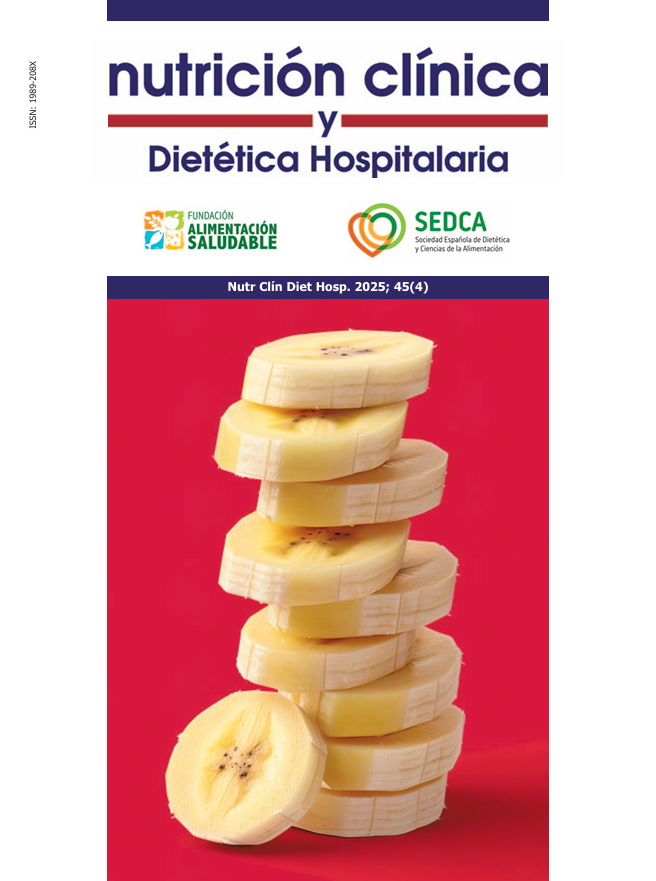Association of dietary habits with sleep quality among collegiate athletes
DOI:
https://doi.org/10.12873/454dagarPalabras clave:
Athelets, Sleep Quality, Dietary BehviourResumen
Background: College-level athletes face unique lifestyle challenges that could adversely affect sleep patterns and dietary behaviors, which have significant implications. Both factors are crucial for maintaining optimal performance, facilitating recovery, and promoting overall health. However, limited research in the Indian context has addressed how sleep-related challenges influence dietary patterns in this population. Objective: The purpose of this study is to examine the relationships among dietary habits, sleep quality, and sleep disturbances in college athletes. Materials & Methods: A cross-sectional research design was employed involving a sample of 255 university athletes. The assessment of dietary behaviors such as meal frequency, fast food consumption, hydration status, snacking patterns, and meal skipping was carried out using a validated questionnaire. Additionally, sleep quality was evaluated using the Modified Pittsburgh Sleep Quality Index and perceived barriers to sleep (e.g., academic stress, use of electronics, training schedule). Results: Electronics use (40%) and social activities (36%) were the most common sleep barriers, followed by academic stress (16%) and training schedule (7%). Forty-one percent of participants reported regular meal skipping, and frequent fast-food intake (>2 times/week) was prevalent. Sleep scores (Modified PSQI) were modestly but significantly correlated with dietary habit scores (ρ = 0.170, p = 0.016). Linear regression indicated sleep quality significantly predicted dietary habits (β = 0.173, p = 0.014), explaining 3% of variance.
Conclusion: Sleep quality is modestly associated with dietary behaviors among Indian collegiate athletes. Interventions targeting sleep hygiene and nutrition could enhance health and performance in this population.
Referencias
1. Aneesh M, Chaganty A. Sleep quality and processed food consumption among female college students. DY Patil J Health Sci. 2021;9(1):17–21. DOI: https://doi.org/10.4103/dypj.DYPJ_13_20
2. Poulos NS, Pasch KE. Energy drink consumption is associated with unhealthy dietary behaviours among college youth. Perspect Public Health. 2015;135(6):316–21. DOI: https://doi.org/10.1177/1757913914565388
3. Gao Y, Wang L. The association between diet and sleep with internalising symptoms in young athletes: a serial multiple mediation models. Front Nutr. 2024;11:1382068. doi:10.3389/fnut.2024.1382068. DOI: https://doi.org/10.3389/fnut.2024.1382068
4. Hall WL. The emerging importance of tackling sleep–diet interactions in lifestyle interventions for weight management. Br J Nutr. 2022;128(3):561–8. DOI: https://doi.org/10.1017/S000711452200160X
5. St-Onge MP, Mikic A, Pietrolungo CE. Effects of diet on sleep quality. Adv Nutr. 2016;7(5):938–49. DOI: https://doi.org/10.3945/an.116.012336
6. Moss K, Zhang Y, Kreutzer A, Graybeal AJ, Porter RR, Braun-Trocchio R, et al. The relationship between dietary intake and sleep quality in endurance athletes. Front Sports Act Living. 2022;4:810402. doi:10.3389/fspor.2022.810402. DOI: https://doi.org/10.3389/fspor.2022.810402
7. Willett WC, Sampson L, Stampfer MJ, et al. Reproducibility and validity of a semiquantitative food frequency questionnaire. Am J Epidemiol. 1985;122(1):51–65. doi:10.1093/oxfordjournals.aje.a114086. DOI: https://doi.org/10.1093/oxfordjournals.aje.a114086
8. Buysse DJ, Reynolds CF 3rd, Monk TH, Berman SR, Kupfer DJ. The Pittsburgh Sleep Quality Index: a new instrument for psychiatric practice and research. Psychiatry Res. 1989;28(2):193–213. doi:10.1016/0165-1781(89)90047-4. DOI: https://doi.org/10.1016/0165-1781(89)90047-4
9. Walsh NP, Halson SL, Sargent C, et al. Sleep and the athlete: narrative review and 2021 expert consensus recommendations. Br J Sports Med. 2021;55(7):356–68. doi:10.1136/bjsports-2020-102025. DOI: https://doi.org/10.1136/bjsports-2020-102025
10. Mah CD, Mah KE, Kezirian EJ, Dement WC. The effects of sleep extension on the athletic performance of collegiate basketball players. Sleep. 2011;34(7):943–50. doi:10.5665/SLEEP.1132. DOI: https://doi.org/10.5665/SLEEP.1132
11. Eck KM, Byrd-Bredbenner C. Food choice decisions of collegiate division I athletes: a qualitative exploratory study. Nutrients. 2021;13(7):2322. doi:10.3390/nu13072322. DOI: https://doi.org/10.3390/nu13072322
12. Papaconstantinou E, Quick V, Vogel E, Coffey S, Miller A, Zitzelsberger H. Exploring relationships of sleep duration with eating and physical activity behaviors among Canadian university students. Clocks Sleep. 2020;2(2):194–207. doi:10.3390/clockssleep2020015. DOI: https://doi.org/10.3390/clockssleep2020016
13. Deivert S. Relationship between sports participation, weight intentions, and insufficient sleep on e-cigarette use among US high school students [dissertation]. Minneapolis (MN): Walden University; 2024.
14. Hjetland GJ, Skogen JC, Hysing M, Sivertsen B. The association between self-reported screen time, social media addiction, and sleep among Norwegian university students. Front Public Health. 2021;9:794307. doi:10.3389/fpubh.2021.794307. DOI: https://doi.org/10.3389/fpubh.2021.794307
15. Boege HL, Bhatti MZ, St-Onge MP. Circadian rhythms and meal timing: impact on energy balance and body weight. Curr Opin Biotechnol. 2021;70:1–6. doi:10.1016/j.copbio.2020.10.002. DOI: https://doi.org/10.1016/j.copbio.2020.08.009
16. Kirschen GW, Jones JJ, Hale L. The impact of sleep duration on performance among competitive athletes: a systematic literature review. Clin J Sport Med. 2020;30(5):503–12. doi:10.1097/JSM.0000000000000664. DOI: https://doi.org/10.1097/JSM.0000000000000622
17. Robey E, Dawson B, Halson S, Gregson W, Goodman C, Eastwood P. Sleep quantity and quality in elite youth soccer players: a pilot study. Eur J Sport Sci. 2014;14(5):410–7. doi:10.1080/17461391.2013.819384. DOI: https://doi.org/10.1080/17461391.2013.843024
Descargas
Publicado
Número
Sección
Categorías
Licencia
Derechos de autor 2025 Nutrición Clínica y Dietética Hospitalaria

Esta obra está bajo una licencia internacional Creative Commons Atribución-NoComercial-SinDerivadas 4.0.
Los lectores pueden utilizar los textos publicados de acuerdo con la definición BOAI (Budapest Open Access Initiative)







